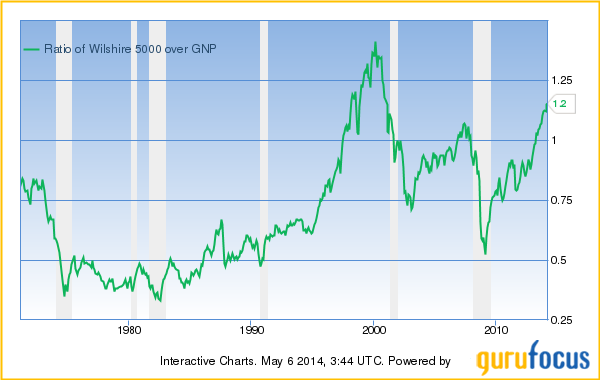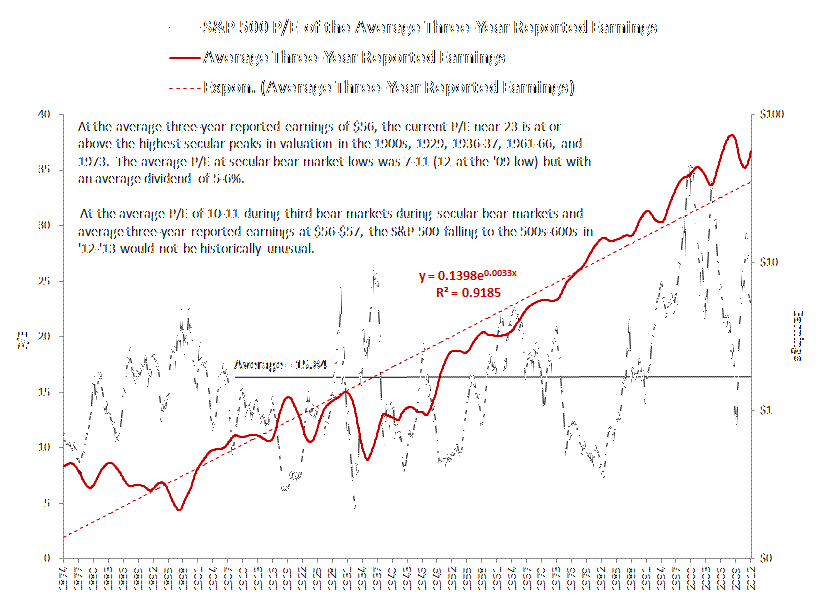THE DAILY GURU 4 Dividends to Weather All Market Cycles
Post on: 16 Март, 2015 No Comment

By: Daniel Genter
President, CEO, and Chief Investment Officer, RNC Genter Capital Management
Fund manager and advisor Dan Genter looks for stocks with high dividends to help investors get through various market conditions. He tells MoneyShow.com about some of his favorites, and discusses his take on earnings season.
Kate Stalter. Today, Im on the phone with Dan Genter, CEO of RNC Genter .
Dan, we are in the middle of earnings season. As we are speaking, Apple (AAPL ) reported the day before yesterday. I wanted to ask you: What themes are you seeing? What should individual investors be aware of as we are in the middle of earnings season right now?
Dan Genter. What were seeing is that generally, the stocks that are economically sensitive, but dont need to have an extremely robust economy, are doing well.
Were certainly seeing the technology stocks, for the most part, are doing well. In many cases theyre outperforming. Were even seeing some of the consumer stocks that are meeting their targets, as we begin to see some increases and rebound in consumer spending. Really, the only areas that are struggling, if you will, will be the industrial area and some of the materials.
So I think that what were seeing is a confirmation that were going to continue to have moderate to slow growth, a 2% to 2.5% GDP growth environment, but that is going to facilitate earnings increases of somewhere that would be 8% to 10% for calendar year 2012.
Frankly, I think that people should be very encouraged that were continuing to see a very positive earnings trend, and were still trading at about a 13 P/E on the market. So its not going to be something thats going to facilitate a 120-knot tailwind thats going to drive us up 20% this year, but clearly it keeps us on a pathway to see potentially 10% to 12% returns for the year.
Kate Stalter. I wanted to segue into some of your investment strategies, Dan. Last time we spoke here, we did not talk about the RNC Genter Dividend Income Fund (GDIIX ). So I wanted to talk a little bit about that. It looks like some of your top holdings there are utilities, domestic blue chips. Tell us about the funds objectives, and maybe some of the holdings.
Dan Genter. Sure. Well, the fund really works very similar to what our separate accounts do, and the overall focus is really trying to buy high-dividend stocks. Were targeting to have a dividend flow, which is double the S&P 500. Currently, its a very attractive 4%.
Were generally tryingwe know we cant buy these large, high-dividend-paying stocks at growth rates that are 30% to 40% faster than the market, but the fact is: You can find them where theyre growing somewhere 10% to 15% faster than the market in earnings. And the fact of the matter is: You cant buy them at a huge discount, but you can still buy them at a full 1 P/E multiple point to 2 P/E multiple points below the S&P.
So the philosophy itself is to buy large-cap, value-oriented companies with double the S&P cash flow from dividends, have those that are going to grow a little faster than the market, and hopefully buy them at about a 15% discount, which should hold us in good stead with a little more support on the downside, and give us a little above-average growth on the upside. So you at least are winning in the down markets and the flat markets, and youre getting your fair share on the upside.
Kate Stalter. Anything you can say about some of the specific holdings? Maybe some that have performed very well, or some that you have added recently?
Dan Genter. Well, I think on the technology side, certainly the big winner weve had is Intel (INTC ), even though that doesnt sound like a high-dividend stock. I mean, when youre in a position where youre paying a 3% to 3.5% dividend, its certainly going to qualify for our 2% minimum, and its also showing a metamorphosis in the marketplace.
Buying dividend stocks is not your grandfathers portfolio anymore. I mean, you really can get broad representation and diversification in all the major economic sectors, even ones that would be non-traditional for higher dividends, like technology.
On the other end of the spectrum, you know, I think the consistency of some of the consumer staples stocks, even some of the standard addiction stocks, you find that Altria (MO ) has done very well, which is the US subsidiary of Philip Morris, paying about a 7% dividend.

Then you also have Philip Morris International (PM ), which is all of Philip Morriss international holdings and operations, and thats actually paying about a 4% dividend.
Also in that same category would be Molson Coors (TAP ), which is actually a new acquisition for us. Even though beer sales have been fairly flat, they just made a major acquisition in Eastern Europe, which is dramatically going to increase their margins and be very accretive. So those are a few of the holdings we still find attractive currently.
Kate Stalter. You had mentioned a moment ago that the philosophy in the funds was similar to what you are doing in some of the separate accounts. Talk a little bit about some of the strategies you employ therehow maybe they are similar or different from what we just talked about in the fund.
Dan Genter. Well, the overall strategy, the philosophyand in many cases, the overall holdingsare very, very similar. I think the major differences that you get as you go into the separate account versus the fund is obviously the fund is collective, and theres very little that you can do from the standpoint of customization to the client.
So on the separate account side, where we have a $250,000 minimum, if you meet that, then the biggest advantage is: You really can do tax planning. And having the abilities to do tax planning is pretty substantial, because when you can offset gains and losses, you can adjust your cash flows.
These portfolios, because of the efficiency and the low taxation for both capital gains and also for dividends, literally are running at about a 93% tax-efficiency rate. So people are keeping about 93% of the earnings that they get. So its also very tax-efficient, in addition to having strong total returns and good cash flow.
Kate Stalter. And anything for people who are listening today at home? Any particular steps you might advice that they take along those lines?
Dan Genter. Well, I think that if theyre going to do something themselves versus hiring a professional, the major thing that they have to watch out for is: They really have to not just look at the dividend yield and the cash flowbecause in many cases people have their nose to the ground, theyre looking for high dividend yields and they dont really look up to see whats happening with regards to the individual performance of the stock and where the valuation of the stock is and the sectors.
So I think they really have to look at it holistically. Yes, you want to have the high dividend, but you need to make sure youre buying a company thats very physically sound from a balance-sheet standpoint, that they can maintain that dividend, and that youd feel very comfortable buying the company even if it didnt have a dividend on a total-return basis.














